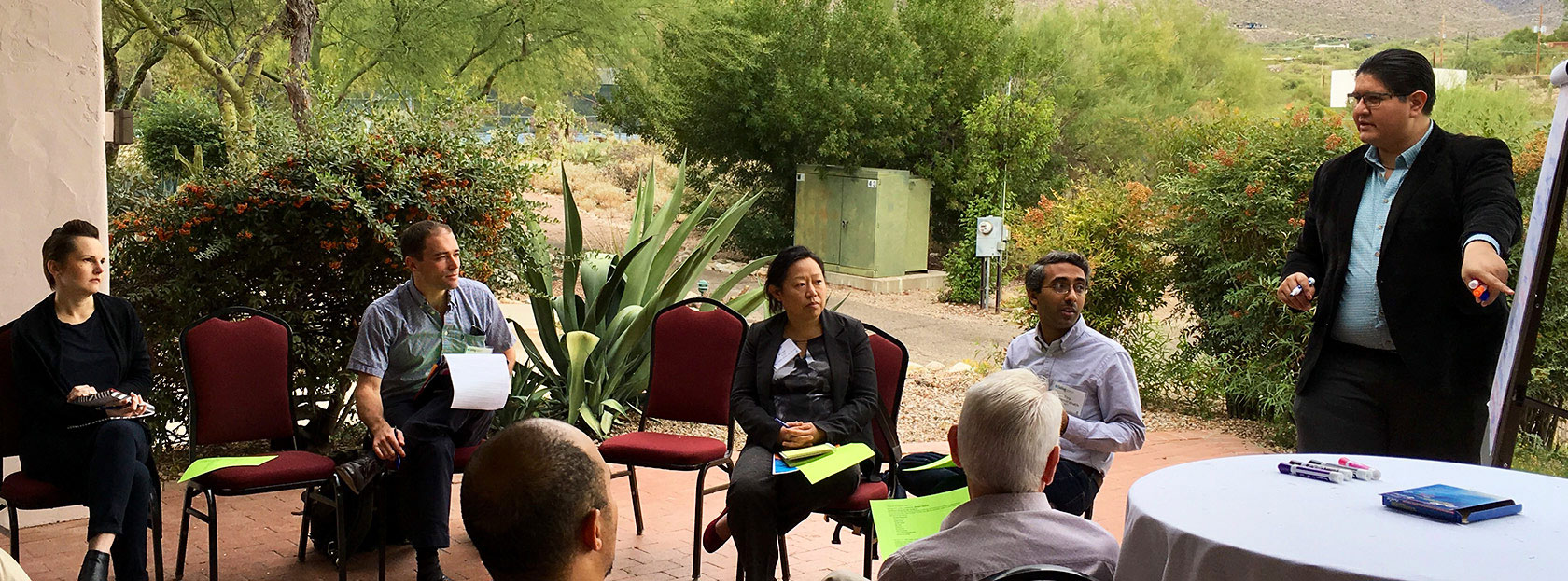Explore RCSA
Scialog Calendar
Neurobiology and Changing Ecosystems (2025 – 2027)
- March 13 – 16, 2025
- March 12 – 15, 2026
automating chemical laboratories (2024 – 2026)
- April 3 – 6, 2025
Sustainable minerals, metals, and Materials (2024 – 2026)
- Sept. 10 – 13, 2025
quantum matter and information (2025 – 2027)
- Oct. 16 – 19, 2025
Early science with the lsst (2024 - 2026)
- November 13 – 16, 2025
About Scialog
Scialog supports research, intensive dialogue, and community building to address scientific challenges of global significance. Within each multi-year initiative, Scialog Fellows participate in intensive discussions to identify bottlenecks and encourage innovative approaches, collaborate in high-risk discovery research on untested ideas, and communicate their progress in annual closed conferences. The Scialog process is guided by senior scientists recognized as world-leading researchers in the area of focus. Ultimately, Scialog aims to advance human knowledge by empowering a national community of early career scientists with many promising years of research ahead of them to tackle challenging multidisciplinary problems.
Scialog aims to support early career faculty to expand research in a focused area of high scientific importance; encourage scientists to form multidisciplinary teams to tackle these critical challenges; and help transition awardees to obtain further funding for their innovative ideas. Success for Scialog Fellows is measured by highly impactful results, ongoing support from private foundations and federal agencies, and, ultimately, scientific breakthroughs.
Research Corporation for Science Advancement fosters a welcoming and respectful environment for listening in which the different identities, backgrounds, and perspectives of all participants are valued, and in which everyone is empowered to share ideas as fellow scientists. Read our Code of Conduct.
Becoming a Fellow
Approximately 50 early career faculty are invited to participate as Fellows for each Scialog, with early career spanning the time from the first year on the faculty through recently post-tenure.
- To nominate yourself or another early career scientist: Contact the program director or ask your colleague to self-nominate. Please check each initiative's webpage for details and to determine if applications are being accepted.
What should Fellows expect at a Scialog? Click here for a guide.
Articles about Scialog
- “Scialog: The Catalysis of Convergence” in ACS Energy Letters
- “Why a Scialog on Negative Emissions Science?” in iScience
- “Dynamics of Social Interaction: Modeling the Genesis of Scientific Collaboration” in Physical Review Research
- “The Science of Scialog: How Conference Design Sparks Collaborations”
- "Face-to-Face or Face-to-Screen: A Quantitative Comparison of Conferences Modalities" in PNAS NEXUS
- “Scialog Gets the Prototyping Mindset” blog post
- “Scialog (Science Dialog): A Methodology for Accelerating Breakthroughs for Solving Complex World Issues” in 2010 Electrochemical Society Interface







